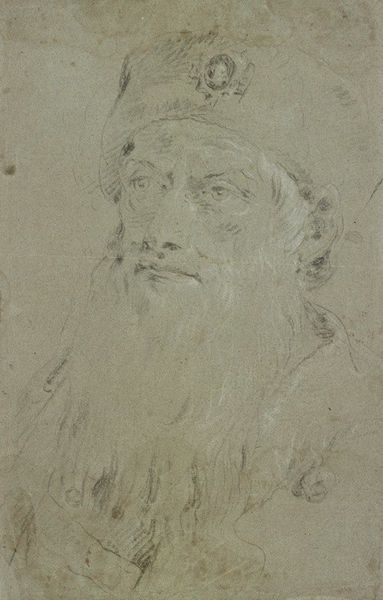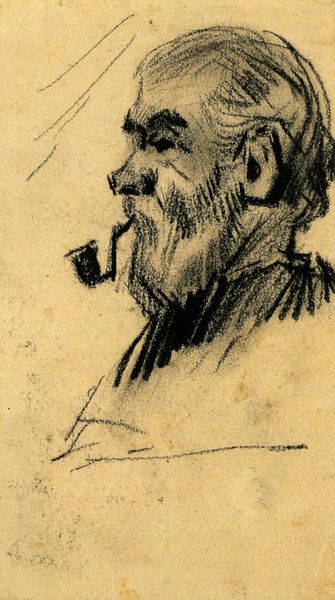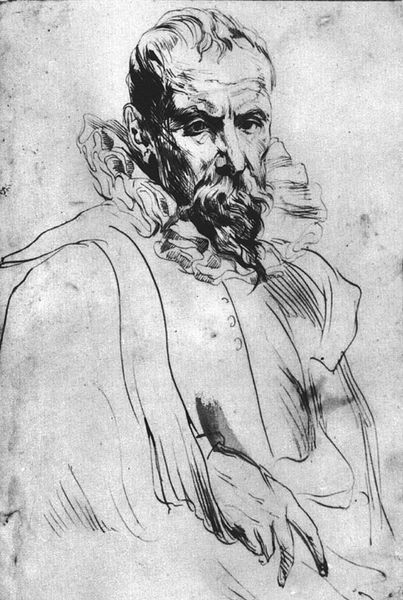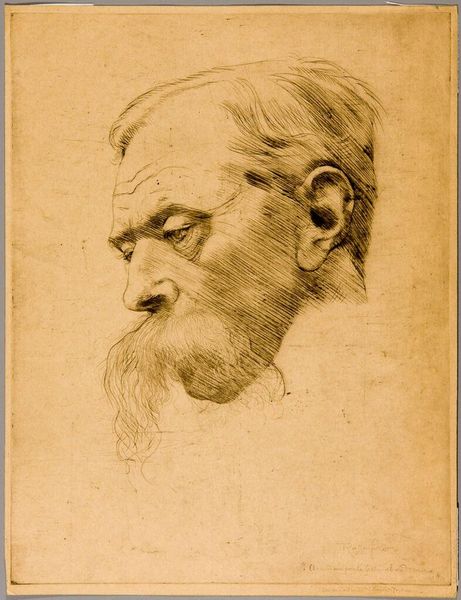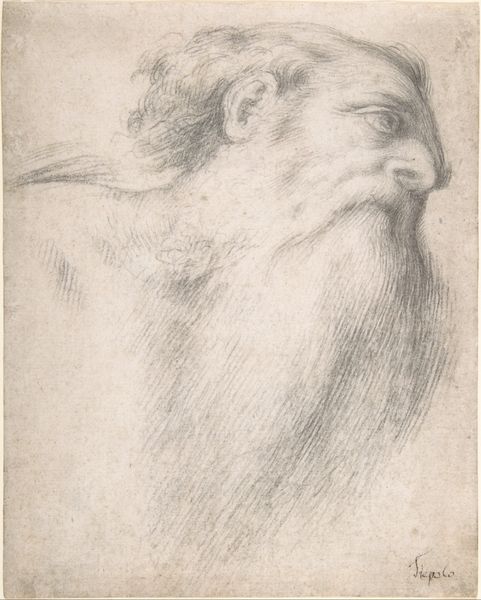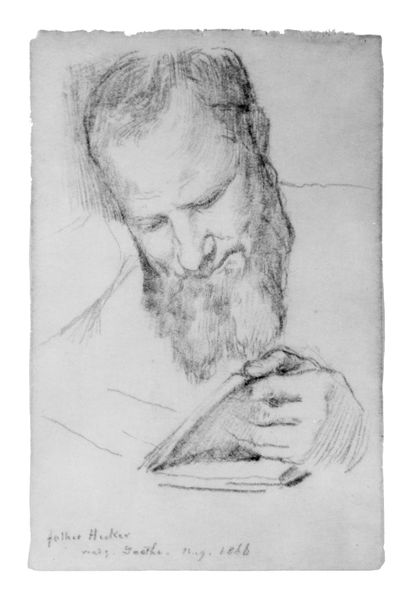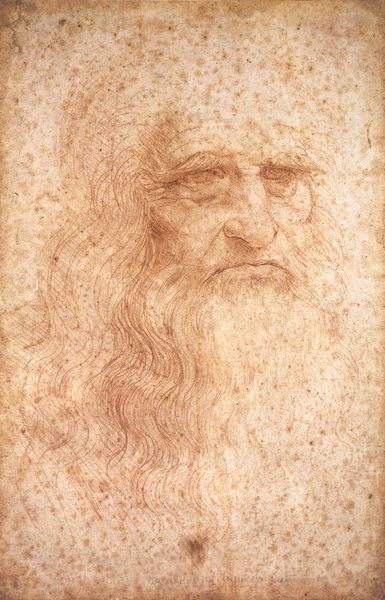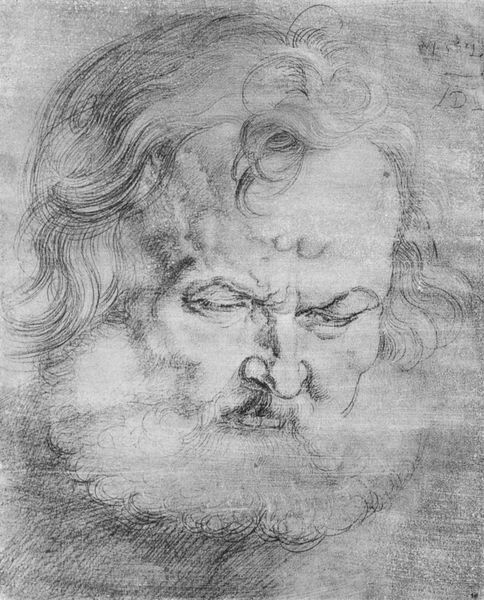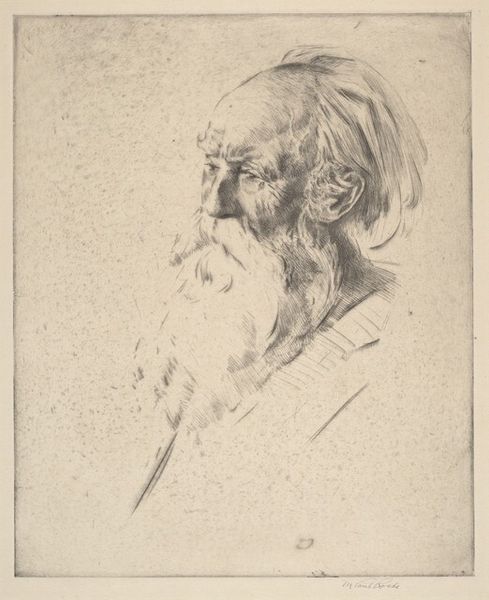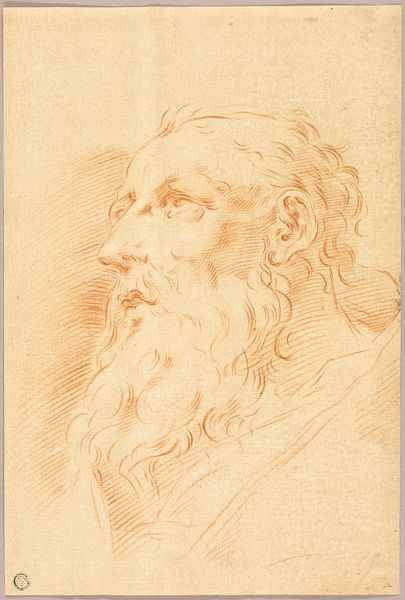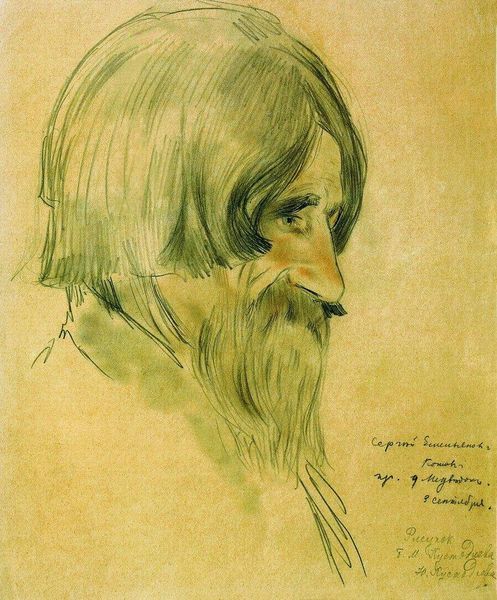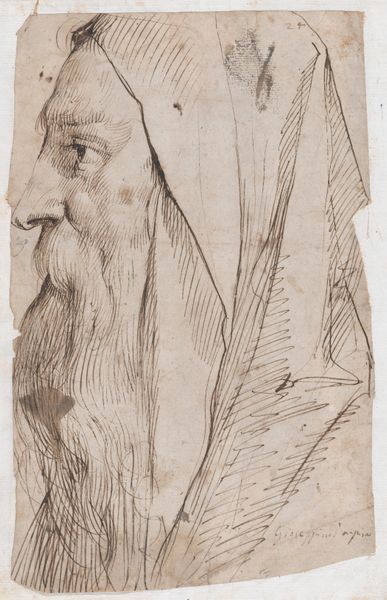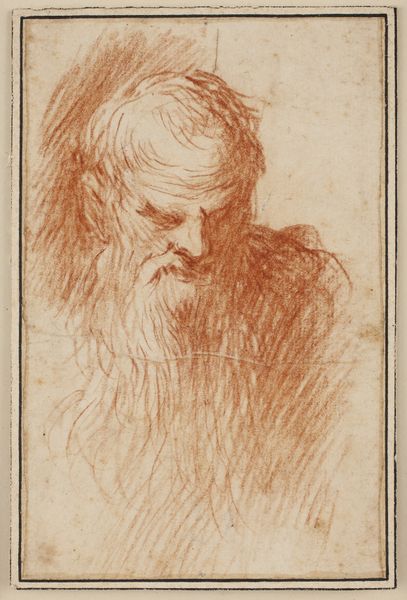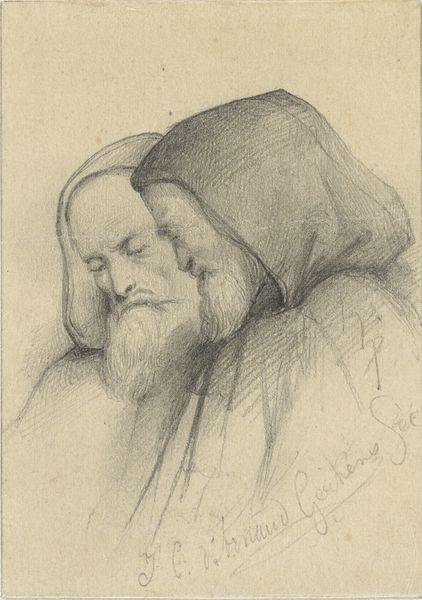
Portrait of Matthew Landauer 1511
0:00
0:00
albrechtdurer
Städelsches Kunstinstitut und Städtische Galerie (Städel), Frankfurt am Main, Germany
drawing, graphite
#
portrait
#
drawing
#
11_renaissance
#
line
#
graphite
#
northern-renaissance
Copyright: Public domain
Curator: What strikes me immediately is the vulnerability in those lines. There's an honesty that's almost painful to look at, like peeling back layers to find a raw nerve. Editor: Indeed. Here we have Albrecht Durer’s "Portrait of Matthew Landauer," executed in graphite in 1511. It's a remarkable drawing currently housed in Frankfurt's Städel Museum, part of a larger cultural wave showcasing the rising merchant class in early 16th century Europe. Curator: Merchant class or not, look at the fragility in the graphite itself. Those are lines of searching, aren’t they? Trying to grasp something fleeting. And that eye, so intense, it tells a story. Almost a challenge to the viewer. What do you see when you really look? Editor: I agree. But this also speaks to Dürer's technical skill. Consider the Reformation era, how artistic patronage was shifting. Dürer made these incredible, intimate portraits that both served and critiqued that new, bourgeoise elite, of which Landauer was a part. Curator: See, I wonder. Is it a critique, or simply a recording? There’s love here, maybe? The way each strand of beard is rendered with such delicate care. You only do that, you really do, when you care. Or obsess, I suppose, but even that is a kind of love gone sideways. Editor: I think you're right to bring in the personal dimension. There's been an ongoing discussion of the portrait within family lineages. Dürer knew the Landauer family very well and he positions the sitter against a backdrop of complex trade networks and shifts in societal structure of Nuremburg. That he did so intimately adds another layer, surely. Curator: Makes you think about how much we ask portraits to carry, doesn't it? All the weight of class, status, artistry, and the quiet tremor of someone just being seen, truly seen, in that moment. Editor: Precisely. Each artwork is not just an image, but a historical record intertwined with personal experiences. Curator: Makes you feel rather humble to stand before it, don't you think? Editor: Indeed, deeply so. Thanks for highlighting some compelling perspectives, hopefully listeners appreciate their own way of reading Matthew's look too.
Comments
No comments
Be the first to comment and join the conversation on the ultimate creative platform.
